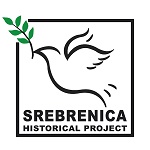The Hague Tribunal is the principal enabler of the Srebrenica propaganda narrative. Though British journalist Neil Clark deals here mainly with some aspects of the Milošević trial and only cursorily with Srebrenica, he hits the nail in the head because he calls into question the credibility of the Tribunal itself and its procedures, regardless of…
Yvonne McDermott-Federico Cerutti amicus curiae submission in the Karadžić appeal
The appellate proceedings in the Karadžić case have taken a new turn with an amicus curiae application submitted on February 21 2018 to the Residual Mechanism for International Criminal Tribunals by two British academics, Dr. Yvonne McDermott and Dr. Federico Cerutti. The submission proposes to test the sustainability of the trial chamber’s conclusion that Radovan…
Marko Attila Hoare: The rantings of an academic buffoon
[One of the best unintentional publicists for Srebrenica genocide doubters is also one of the official narrative’s most aggressive promoters – Marko Attila Hoare. His vituperative and intemperate style of writing is largely devoid of factual references. But that is not at all odd. The official story is thin on material evidence while a huge…
FRY Memorandum on war crimes committed against the Serbian population of Eastern Bosnia between April 1992 and April 1993
This detailed and abundantly documented Memorandum about war crimes committed against the Serbian population in Eastern Bosnia (municipalities of Bratunac, Skelani, and Srebrenica) was submitted to the Secretary General of the UN by the delegation of the Federal Republic of Yugoslavia on 2 June, 1993. The Memorandum received scant media or political attention amidst numerous…
Prof. Peter Maher: When did Srebrenica become “genocide”?
[The question raised by Prof. Maher in this exclusive comment for our website: When did Srebrenica start being referred to as a “massacre” and, eventually, “genocide? is of the utmost importance. If it was not fairly soon after the event, what explains the tardiness to call an alleged spade a spade? Was the initial strategic…
International Court of Justice appellate verdict on genocide (Croatia v. Serbia, 2015)
The International Court of Justice (ICJ) appellate judgment in the matter of Croatia vs. Serbia, concerning mutual allegations of genocide supposedly committed during the Balkan conflict in the 1990s, is relevant to the issue of genocide as it is posited in the context of Srebrenica. See related text here: http://us.srebrenica-project.org/2018/01/14/international-criminal-justice-and-genocide/ ICJ’s analysis of the sort of evidence…
Prof. Kjell Magnusson on ICTY genocide judgments
Scholarly article by Uppsala University academic, Prof. Kjell Magnusson, critically examining the concept of genocide as developed in ICTY jurisprudence. Prof. Kjell Magnusson on ICTY genocide judgments
Andy Wilcoxson: The Fictitious Genocide in Srebrenica (2010)
The public has been wrongly led to believe that Bosnian-Serbs massacred 8,000 Bosnian-Muslim civilians in a vicious campaign of genocide in the Bosnian town of Srebrenica in July of 1995, but documents found in the archives of the UN war crimes Tribunal in The Hague cast serious doubt on these allegations. The Allegation Writing for…
The NIOD Report
Everyone involved in Srebrenica research is aware of the NIOD Report which was published in 2002 by the Nederlands Instituut voor Oorlogsdocumentatie [Netherlands Institute for War Documentation, http://www.niod.nl/] in 2002. The Report, which focuses on the tragic events in Srebrenica in July of 1995 is universally regarded as a first rate research and documentation tool.…
Srebrenica Dissected
Introduction From its inception our NGO “Srebrenica Historical Project” was committed to forming a comprehensive and contextual archive of wartime events in and around Srebrenica between 1992 and 1995. We have every reason to be satisfied with the progress of our work. It is focused strictly on the facts and the evidence, it is clinically…
